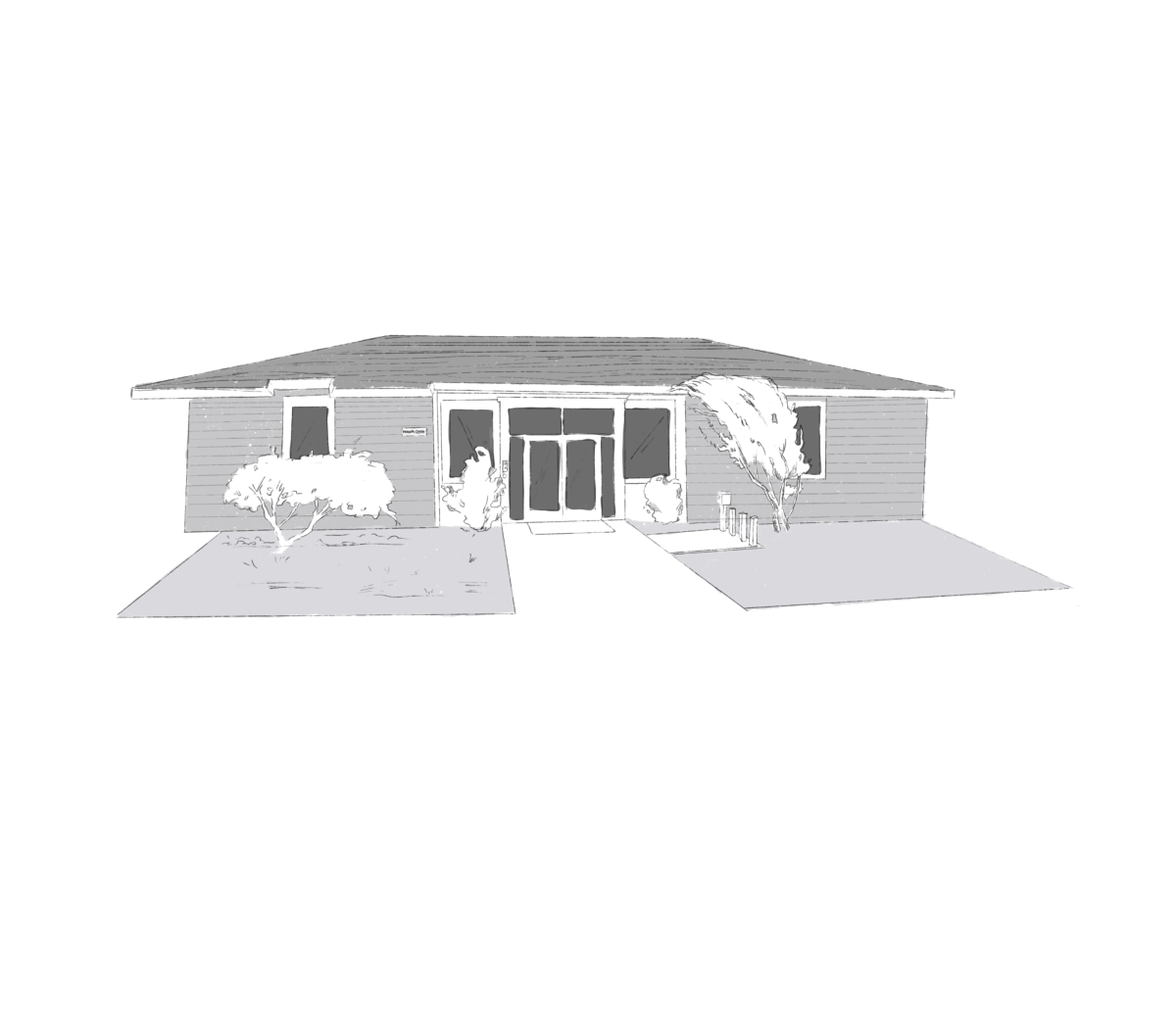
The Walla Walla Police Department (WWPD) has extensive resources for victims of sexual assault and intimate partner violence. On Dec. 4, Administrative Sergeant Nick Loudermilk, Detectives Kristen Daschofsky and Marcus Goodwater, Domestic Violence Victims Advocate Chalese Rabidue, and Crime Victims Advocate Emily Redman walked The Wire through each step a victim goes through in the crime reporting process at WWPD. During each step of the walkthrough, respect and compassion for victims was emphasized, with the WWPD’s message for victims coming across clearly: “you’re in control, and I’m here to listen.”
The process starts when victims or survivors (according to the Sexual Assault Kit Initiative, the term ‘victim’ should be used to illustrate that a crime has been committed against a person, and the term ‘survivor’ may be used to refer to someone who is going through the long-term healing process), walk into the PD’s Lobby. There, they are greeted by one of WWPD’s records technicians.
“If somebody comes in to report a sexual assault, they walk through the front doors and then … they could walk up to any window, speak to one of the records technicians and just say that they’re here to report a crime,” Loudermilk said.
From there, the records technician enters a call into the dispatch system, which then goes to the dispatch center and is assigned to an officer on duty.
“They don’t have to give their name. If they just want to say I want to talk to an officer and that’s it. If they don’t want to say what it’s for, they don’t have to,” Loudermilk said.
Response times vary depending on the availability of the on-duty officers. According to Loudermilk’s estimates, the wait time may take “anywhere from a few minutes to a half hour, 45 minutes if there’s only four officers on and they’re getting their butts handed to them out on the street.”
Loudermilk emphasized that wait times will be clearly communicated to the reporting party.
While they wait, Chalese Rabidue says that a victim’s advocate would likely also be called out to speak with the victim.
“I think all of our records people are going to say, you know, we’ve got a social worker, we’ve got an advocate, is it okay if I call them out to talk with you?” Rabidue said. “And then we would probably ask a couple questions and either take them back to an interview room… or to one of our offices and kind of start figuring out what’s going on and then wait for that officer to come in.”
There are a number of interview rooms in the Department, with one tucked away in the corner of the main lobby and multiple others located farther in the building. Victims can also wait in the lobby’s interview room if they don’t want to stay in the public lobby.
“All victims of crime have a right to an advocate or person of choice, and so we want to make sure that, you know, everybody’s comfortable talking with us and that they’ve got a support person, that’s super important,” Rabidue said.
Victims who want to report a crime but do not want to come into the department can always call 911.
If the assault constitutes rape or other physical violence, once victims speak with victims advocates or officers they may choose to go to the hospital to conduct a Sexual Assault Nurse Exam (evidence collected is catalogued in known ‘SANE’ kits or, colloquially, ‘rape kits’) or receive other treatment. Per the Violence Against Women Act, people cannot be charged for forensic exams after experiencing sexual assault. However, other services rendered during the hospital visit may be charged. All victims can have someone present with them during the examination. Exams need to be completed within 72 hours of the assault in order to accurately preserve the evidence.
“Preserving evidence with a sexual assault kit to decide later what they want to do with it is so important, and documentation is so important,” Rabidue said. “You know, it doesn’t matter what you want to do down the road, we’ll figure that out, but let’s document your report and your sexual assault kit. Because we can’t get things back later.”
Once collected, kits are stored securely and will not be tested unless the victim chooses to move forward.
Next, or if no hospital visit is needed, victims might choose to speak with Rabidue or Redman.
Rabidue’s office is inviting, with assorted yearbook photos pinned to the walls and decorations scattered throughout. Rabidue says when a victim visits with her, she closes the doors and blinds to ensure privacy.

Redman has the largest office in the Department and has outfitted her space with two cushioned chairs where victims can sit to speak with her.
Both Redman and Rabidue have designed their spaces to be welcoming. In these spaces, while sitting down with victims, Redman and Rabidue listen and share resources.
“We would just have a conversation and talk about what’s going on, like what choices are you trying to make, what do you think you want to do and then just educate you about all of your options,” Rabidue said. “And I definitely want to make it super clear that, especially students, can run a Title IX investigation parallel to a criminal investigation.”
At Whitman, where nearly a dozen students have come forward with stories that show a pattern of mishandling sexual misconduct cases, funneling them through Code of Conduct as opposed to Title IX and being discouraged to pursue police action, students may be surprised to learn that this option is available to them.
“In the ideal world, us advocates would be on your campus all the time. Meeting with students and administration and staff and just trying to make sure all your needs are met. That would be collaborative,” Rabidue said.
There are benefits to using a formal reporting system like police action, including the ability to decide when and how to see a report through. Numerous victims who spoke with The Wire shared that their Title IX cases closed when the perpetrator dropped out of Whitman. In 2016, for example, a person of interest in a series of druggings dropped out when he was made aware of pending conduct proceedings by the college. While the student was then barred from campus, it does not appear that further administrative action from the school was, or could have been, taken.
At the WWPD, however, both advocates and detectives emphasized that victims choose when and how to move forward and that cases are often resolved before trial.
“I think [everybody’s mind] goes to the end of, like, trial … [and think] oh my gosh, there’s no way I can, you know, get up on that stand and talk about what happened in front of the perpetrator, in front of a jury,” Rabidue said. “We try to dial that back and say, you know, we’re going to take this one step at a time, no matter what, we’re going to be with you for the entire case.”
The WWPD has two interview rooms for victims, which are outfitted with armchairs, rugs and calming artwork. Rabidue says the rooms were designed to help make victims feel more comfortable, with funding from grants and other fundraising efforts going into building a purposeful environment centering victims’ experiences.
In one of the rooms, a basket next to the armchairs contains fidget toys, ‘worry rocks’ and crystals for victims.
In these rooms, formal interviews are conducted, which detectives say can take multiple hours. Detectives say they try to utilize a conversational approach to help victims feel more comfortable.

By leading with compassion for victims, the WWPD say they seek to ensure that victims are able to feel a sense of agency while going through the long reporting process.
“I want people to know that there shouldn’t be any surprises for them along the process because of how they’ve said that everything will be explained the whole way through,” Loudermilk said. “They are the drivers of this. It’s at their pace.”
For Detectives like Daschofsky and Goodwater, this statement also rings true.
“We always tell people, at least I do, you’re in control and I’m here to listen,” Daschofsky said.
“I had a lady once that, she did the kit, and then she came in, she goes, I don’t want to give my name yet, but I want to give my story,” Goodwater said. “But she was on the fence on that, so I talked with her. I said, you know, let’s get it now, it’s fresh in your mind, and then you can always come back later and say you want to move forward.”
Goodwater says that the victim never chose to move beyond simply sharing her story with him. Ultimately, he says, he never even knew her name.
“It was in the kind of date rape scenario, and she just wanted to get it off her chest. So I talked with her, sat with her, and, and she gave her statement,” Goodwater said. “As far as I know to date, she never pushed for it to go any further than that, it’s just, that’s where it’s at. I didn’t know her name.”
According to a National Sexual Violence Resource Center blog post authored by Olympic Gymnast and Larry Nasser abuse survivor Rachel Haines, “silence around sexual abuse leads to more abuse.” Sharing experiences with abuse and sexual assault can be not only therapeutic, but also empowering for survivors.
“One time, a woman wanted to talk with me. She was 80 years old and she wanted to report that when she was a little girl, she was raped. And that’s okay. I still took her statement. I still listened to her,” Goodwater said. “Even though the person that did it was long since passed away, I still listened to her.”
At Whitman, many survivors who spoke with The Wire recounted feeling like they had limited options. One survivor, who requested to remain anonymous, said that because her assault happened during a period of time when the Title IX rules were under transition, Whitman seemed unsure of how to handle her case.
“They told me that it would take 60 days. It took over 150 days,” Paris* said, “20 days [of which] we were doing this weekly meeting with me telling them exactly in detail what had happened.”
“They just really clearly didn’t care,” Paris said, who says meetings with Title IX investigators and personnel were routinely cancelled for no discernable reason.
Detectives at the WWPD emphasized that whether victims choose to move forward with a case, or simply want to share their stories, there are many options available to them.
“I don’t want people thinking that just, oh, well it’s been two weeks since I was raped or it’s been six months since I was raped and there’s no physical evidence. They can still report. They can still come in,” Goodwater said. “We will still listen to their stories.”
















Dollar Tree Tom • Dec 12, 2024 at 9:25 pm
They’re giving people schitsofrenia here.. The gaurd that quit for moral reason. For being told he can give me a q tip for my bleeding ear. And the doctor is on the island taking vacation.
If you understand law ;/